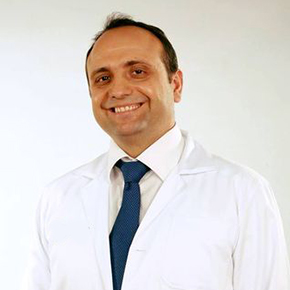Pregnancy after the Age of 35!!

Many women are starting their families at an older age, there are many reasons behind this, like, education, having a career or financial and social constraints. Fortunately, the advancement in assisted conception techniques have increased the chances for women above their mid-thirties to go through the journey of pregnancy. However, pregnancy complications are most likely to happen with women above the age of 35.
In this article, we are going to shed light on these complications:
-
Trouble Getting Pregnant:
Pregnancy chances become less the older the women. The monthly chance of getting pregnant for a 22-year-old woman is around 20% while it is around 8 % for a 35-year-old woman. This does not mean that women above 35 cannot get pregnant but it might take longer time for it to happen.
-
Risk of Miscarriage:
The risk of miscarriage increases in women older than 35 years; due to the quality of the egg produced, in which it may cause Chromosomal Abnormalities in the fetus. This condition is considered as the most common cause for miscarriage in the first trimester of pregnancy.
-
Birth Defects:
Birth defects are health conditions that surface after birth, these defects affect the shape or the function of one or more organs, such as, Cleft lip, extra digits, heart septal defects and bowel obstruction. Keep in mind that most of these conditions can be diagnosed during pregnancy.
-
Chromosomal Abnormalities:
The most common chromosomal abnormality that may arise with women that give birth after the age of 35 is Down Syndrome. There are tests available that can diagnose Down Syndrome as early as 10 weeks of pregnancy.
-
Preeclampsia:
This condition might happen in the second trimester of pregnancy. It is usually associated with elevated blood pressure and the appearance of protein in the urine. Preeclampsia can cause damage to the kidneys, liver and even the brain of the mother, but it is usually mild and can be managed easily.
-
Preterm Birth:
Is the case where the delivery of the baby takes place before 37 weeks of pregnancy. Preterm birth may cause some fetal complications and the possibility of the admission to the Neonatal Intensive Care Unit (NICU).
-
Low Birth Weight:
This pregnancy complication is also associated with fetal complications.
-
Stillbirth:
This means giving birth to a dead baby in the second trimester of pregnancy.
-
Gestational Diabetes:
Developing diabetes during pregnancy is due to hormonal changes during pregnancy Hence, older women are more likely to develop gestational diabetes.
Women after the age of 35 may encounter other -than the mentioned above- complications during pregnancy, this usually happens with women who have some chronic health conditions prior to pregnancy like, Obesity, Diabetes, High Blood Pressure, Hypothyroidism and elevated Lipid profile. Therefore, it is recommended that they visit their Obstetrician before getting pregnant. The doctor will investigate each case by ordering some tests and doing the right examinations. All of these exams, will help the doctor look for specific conditions that might affect the pregnancy. In the case where all of these exams came out looking good for the doctor, he will recommend a daily dose of Folic Acid to be taken while attempting for pregnancy. Early detection of pregnancy complications in women above 35 can easily be done, if they visit their doctor regularly during pregnancy even if they were feeling fine and have no apparent complications. Each visit the doctor will monitor the course of the pregnancy, and will order some tests for each phase such as, ordering screening tests for, Chromosomal Abnormalities in the first trimester, and at the sixth month of pregnancy the doctor usually examines the baby for abnormalities and defects. The doctor will also screen for Diabetes, elevated blood pressure and Hypothyroidism. Nonetheless, Ultrasound examination for fetal anomaly is essential during pregnancy. The general advice we give to women who are in their mid-thirties, is that pregnancy is possible and most of the time continues without major complications. However, you need to visit your doctor before getting pregnant and regularly during pregnancy. Do not smoke, do not drink alcohol, eat healthy and enjoy your pregnancy.



















